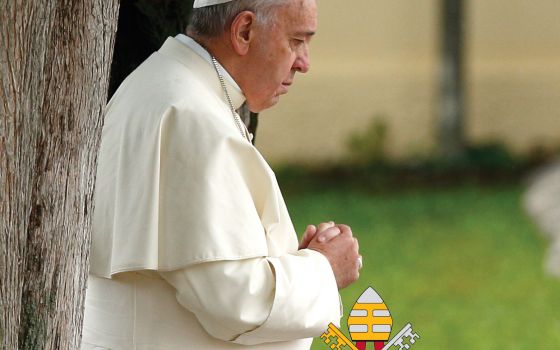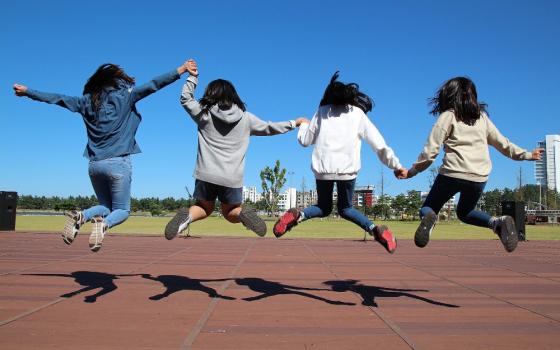
(Pixabay/pixel2013)
READ
Chapter 6, sections 5 and 6
In the middle of chapter 6, Pope Francis discusses the important work of love. Yes, love counts as work. He begins by describing how care for nature is a lifestyle, and of the intentional work that's required to love our enemies in order to create "universal fraternity." Then he declares: "We must regain the conviction that we need one another, that we have a shared responsibility for others and the world, and that being good and decent are worth it" (229).
Francis continues: "Love, overflowing with small gestures of mutual care, is also civic and political, and it makes itself felt in every action that seeks to build a better world. Love for society and commitment to the common good are outstanding expressions of a charity which affects not only relationships between individuals but also 'macro-relationships, social, economic and political ones'" (231).
It takes time and effort to engage politically, especially to do so consistently so that we can shape the institutions and systems around us. Yet, Francis says: "Not everyone is called to engage directly in political life. Society is also enriched by a countless array of organizations which work to promote the common good and to defend the environment, whether natural or urban. Some, for example, show concern for a public place (a building, a fountain, an abandoned monument, a landscape, a square), and strive to protect, restore, improve or beautify it as something belonging to everyone" (232).
In a similar vein, Francis also reflects on the importance of rest: "Sunday, like the Jewish Sabbath, is meant to be a day which heals our relationships with God, with ourselves, with others and with the world… We tend to demean contemplative rest as something unproductive and unnecessary, but this is to do away with the very thing which is most important about work: its meaning. We are called to include in our work a dimension of receptivity and gratuity, which is quite different from mere inactivity. Rather, it is another way of working, which forms part of our very essence. It protects human action from becoming empty activism; it also prevents that unfettered greed and sense of isolation which make us seek personal gain to the detriment of all else… Rest opens our eyes to the larger picture and gives us renewed sensitivity to the rights of others. And so the day of rest, centred on the Eucharist, sheds it light on the whole week, and motivates us to greater concern for nature and the poor" (237).
REFLECT
We clearly have a lot of work to do. Earlier in this series, I've spoken about the importance of voting for politicians that truly care about protecting the most vulnerable members of society, supporting the working poor, committing to international developmental goals, and protecting the environment and biodiversity.
However, taking action doesn't always have to be political. Consider the community actions laid out by the pope above. Francis also says this: "Around these community actions, relationships develop or are recovered and a new social fabric emerges. Thus, a community can break out of the indifference induced by consumerism... In this way, the world, and the quality of life of the poorest, are cared for, with a sense of solidarity which is at the same time aware that we live in a common home which God has entrusted to us" (232).
All this means that God's work can come in many forms. What are you called to do?
ACT
If you don't already take one day a week to completely rest (without any serious work commitments), consider adopting one. Like the pope says above, you can still be productive on "rest" days if you're undergoing spiritual contemplation. Every week, use this time to consider the parts of your life that need more love. Maybe you need to be kinder to yourself, or maybe it's a family member or a friendship that needs tending to. Maybe it's your politics or the businesses you support with your money. If you can reflect on this weekly and then take action, you will not only create more inner peace but perhaps a better world too.
Advertisement








